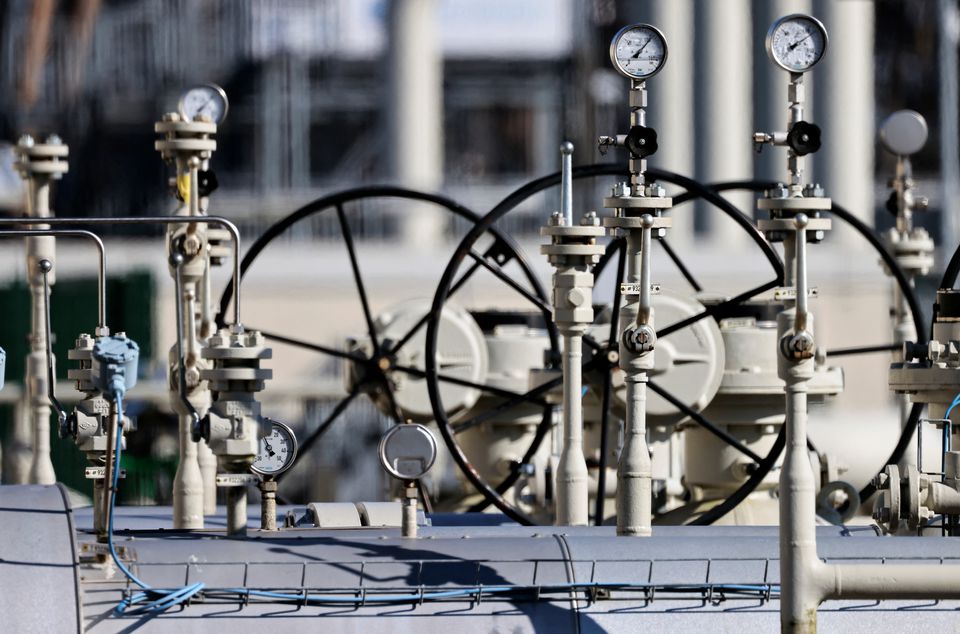Germany faces certain recession if already faltering Russian gas supplies completely stop, an industry body warned on Tuesday, as Italy said it would consider offering financial backing to help companies refill gas storage to avoid a deeper crisis in winter.
European Union countries from the Baltic Sea in the north to the Adriatic coast in the south have been outlining measures to cope with a supply crisis after Russia’s invasion of Ukraine put energy at the heart of an economic battle between Moscow and the West.
The EU relied on Russia for as much as 40% of its gas needs before the war – rising to 55% for Germany – leaving a huge gap to fill in an already tight global gas market. Some states have temporarily reversed plans to shut coal power plants in response.
Global gas prices have sky-rocketed, driving surging inflation higher still and creating a bigger headache for policy makers trying to haul Europe back from an economic precipice.
Germany’s BDI industry association slashed its economic growth forecast for 2022 on Tuesday to 1.5%, revising it down from 3.5% expected before the war. It said a halt in Russian gas deliveries would make recession inevitable.
Russian gas is still being pumped via Ukraine but at a reduced rate and the Nord Stream 1 pipeline under the Baltic, a vital supply route to Germany, is working at just 40% capacity, which Moscow says is because Western sanctions are hindering repairs. Europe says this is a pretext to reduce flows.
The slowdown has hampered Europe’s efforts to refill storage facilities, now about 55% full, to meet an EU-wide target of 80% by October and 90% by November, a level that would help see the bloc through winter if supplies slowed further or were halted.
Italian Ecological Transition Minister Roberto Cingolani said Italy need to step up its refilling efforts and said Rome needed to consider how to help companies fund purchases of gas for storage.
An Italian government source said a state guarantee was a potential option to help lower the cost of financing.
“Gas currently is so expensive that operators cannot put money into it,” Cingolani said.
The benchmark gas price for Europe was trading around 123 euros ($130) per megawatt hour (MWh) on Tuesday, below this year’s peak of 335 euros but still up more than 300% on its level a year ago.


